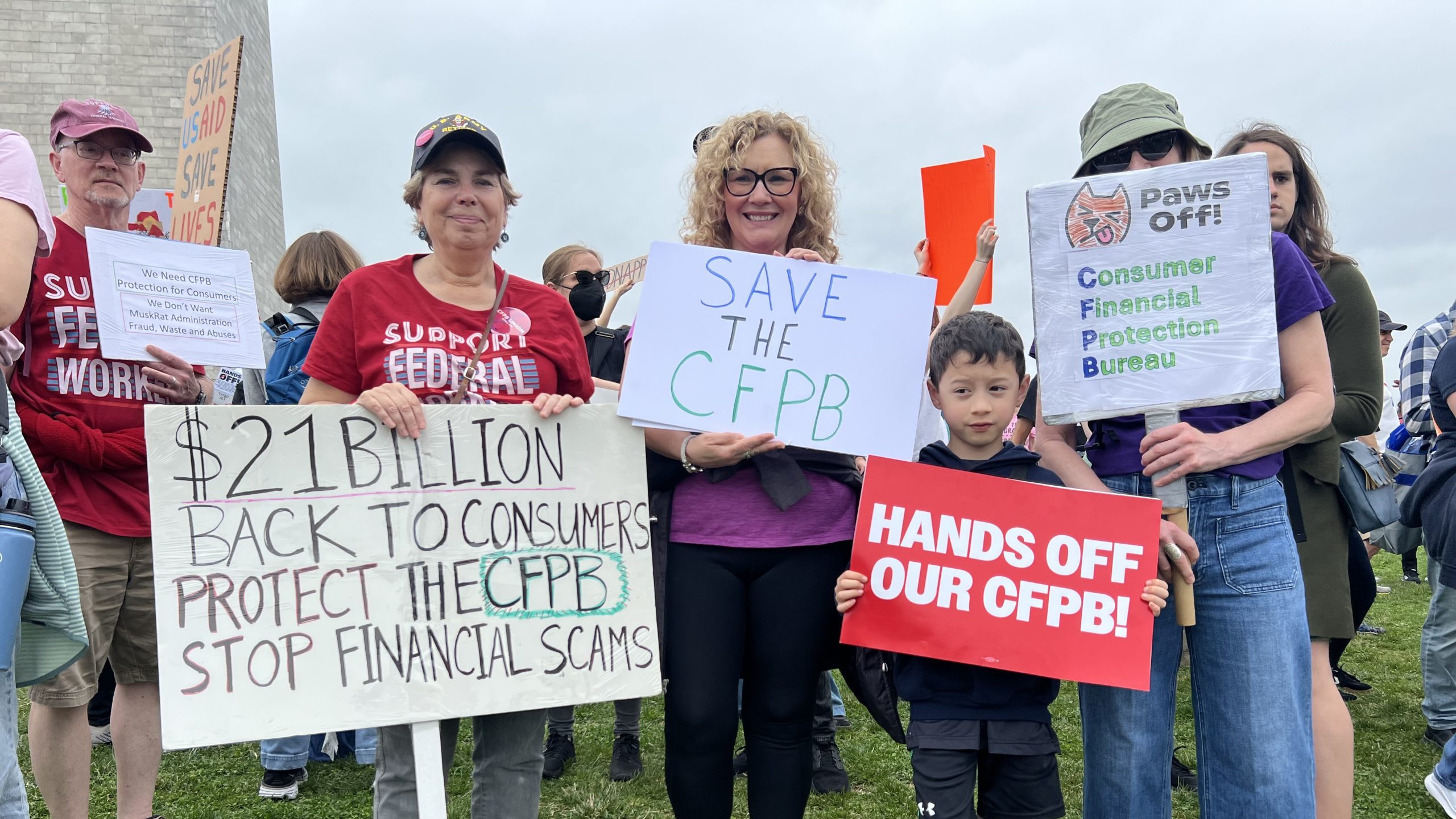-
Press Release: Labor, Investor, and Consumer Advocates Urge Congress to Reject Deregulatory Bill that Imperils Workers’ Retirement Savings
Americans for Financial Reform along with the AFL-CIO, Communications Workers of America, Consumer Action, Consumer Federation of America, National Education Association, National Nurses United, Public Citizen, Service Employees International Union, The Academy of Financial Education, and United Auto Workers, wrote…
Events
-
AFREF Speaker Series: Are We on the Brink of a 2008-Style Financial Crisis?
We appear to be in the midst of a speculative stock market bubble centered on AI. Does that mean we are about to have a 2008-style financial crisis? Join us for a conversation with Damon Silvers about the moment we are in and the steps that regulators should take to guard against the risk of a catastrophic financial crisis. Mr. Silvers was the Deputy Chair of the Congressional Oversight Panel for the 2008 bank bailout and for many years directed financial markets policy at the AFL-CIO. He brings to bear his experiences with the 2008 crisis as well as the…

The Latest from AFR
-
-
Rising Property Insurance Premiums: The Uneven Risks to Household and Systemic Financial Stability
Introduction Property insurance is growing more expensive and harder to obtain throughout the U.S. Climate change and the rising costs of severe weather damage are a crucial cause, but racial and economic inequities within the property insurance market are an important part of the puzzle, and they have been too frequently overlooked. In particular, recent
-
AFR in the News
-
Blockonomi: Senate Crypto Market Structure Bill Hits Roadblock as Consumer Groups and Unions Team Up
Nearly 200 groups have signed a letter expressing concern about the Senate’s version of the crypto market structure bill. The signatories include Better Markets, Public Citizen, Americans for Financial Reform, and the Communications Workers of America.
-
Tokenpost: Consumer and Advocacy Groups Push Back Against Senate Crypto Regulation Bill
Consumer advocated, financial-reform organizations, and several major unions are voicing strong opposition to the Senate’s emerging legislation aimed at regulating the U.S. cryptocurrency market. Nearly 200 groups — including Better Markets, Public Citizen Americans for Financial Reform, and the Communications Workers of America — signed a letter warning that the current proposal fails to protect…
-
CBS News: Bessent calls for overhaul of regulator tasked with spotting systemic financial risks
“What you’re removing is the smoke alarm for the entire financial system,” said Oscar Valdés Viera, private equity and capital markets policy analyst at Americans for Financial Reform, a coalition consisting of over 250 national and local groups.

-
Fact Sheet: CLARITY Act Worse than Last Year’s FIT 21 Crypto Deregulation
From Bad to WorseKey Differences Between Crypto-Backed CLARITY Act and FIT 21 Deregulation Click here for a PDF of this document. This year’s crypto market structure legislation promoted by the industry shares many of the flaws of last year’s crypto legislation, but the deregulatory elements in the Digital Asset Market Clarity Act of 2025 (H.R.












